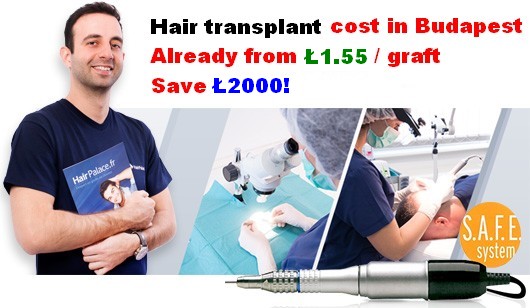 Facing a nutritional deficiency can be a deserving culprit that causes frizzy and damaged looking hair. Besides that, it can also be a main contributor to your thinning hair as well. Many people have the misconceptions that if they eat well enough it’s not possible to face with any nutritional shortages.
Facing a nutritional deficiency can be a deserving culprit that causes frizzy and damaged looking hair. Besides that, it can also be a main contributor to your thinning hair as well. Many people have the misconceptions that if they eat well enough it’s not possible to face with any nutritional shortages.
The fact is getting a balanced nutrition is never that easy because many factors like age, pre-existing medical conditions and genetics can play important roles in determining your nutritional requirements. So are you that sure that your body is getting sufficient nutrients?
What Nutrition is All About
A common cause of nutritional deficiency is when your body is lacking of a certain essential nutrient that is vital for normal bodily functions. There are basically 5 major nutrient groups that your body needs which are
- Protein
- Fat
- Carbohydrate
- Vitamins
- Trace Minerals
Insufficient amounts of any of these 5 major groups of nutrients can lead many nutrition specific conditions and diseases and if left untreated, hair loss will be something that you will be least worried about.
Facing a general deficiency from all the major nutrient groups is quite uncommon and it’s often limited to certain groups of people who are unable to procure a sufficient diet. This usually includes the hardcore poor and certain medical conditions like Anorexia where the sufferer is deprived many essential nutrients. Nevertheless, even for regular folks there is still a good chance from facing with some sort of nutritional deficiency.
Some of the reasons are due to
- Dietary restrictions
- Unhealthy eating habits
- Pre-existing diseases
- Hormones
- Drugs and medications
All of the above scenarios are possible triggers of a nutritional deficiency which can also affect your hair’s health. While understanding the whole scope of nutrition can be overwhelming and its best left to your doctor or nutritionist, let’s take a look at some of the common causes of nutritional deficiencies that are likely to play a part in your hair loss.
Dietary Complications
Diet plays a crucial factor in determining your nutritional balance because you obtain most of your daily nutrition from the foods that you eat. However, due to certain constraints like religion, dietary limitations and crash dieting you might be deprived of certain nutrients that are only abundant in certain food sources.
A good example are vegetarians who are risk of facing deficiency in protein, iron, zinc, vitamin B12, calcium which are often found abundantly in meat sources. These nutrients are crucial for hair growth and the proper development of blood cells. One way to compensate is through supplementation. Check with your nutritionist about your diet and find out how you can compensate the nutrients that you lack.
What Children Needs
Normally, a healthy and mostly organic based diet should cover most of a child’s nutritional needs. One thing to notice is that many children might not take much red meat and that can lead to iron deficiency anemia, a common nutritional deficiency that leads to hair thinning.
It’s also good to know that maintaining sufficient levels of calcium are also crucial for normal bone growth. Foods rich in vitamin B and C are often essential for your child because they are more vulnerable to skin infections, diseases and viruses. If you think that your child lacks of these nutritional values in their regular diet, you might want to double check to see whether he or she requires additional supplementations.
The Hormonal Blunder
When reaching puberty, your body hormones surge and that consequently increases the nutritional requirements to compensate for the changes. That clearly means that extra consumption of foods that are rich in vitamins A/D and B6, biotin, zinc, calcium, magnesium and essential fatty acids are necessary for sustaining overall optimum growth for all the cells including the hair follicles. Hormonal changes during puberty are the cause of oily skin and scalp that leads to acnes, oily scalp and dandruff problems like Seborrheic Dermatitis. Avoid consuming oily foods and exercising regularly can help reduce oil secretion.
Hitting Adulthood
If you are genetically predisposed to Male Pattern Baldness, then you should be cautious as signs of hair thinning can be apparent as soon as your hit your early 20s or maybe even younger. Poor eating habits, smoking and excessive drinking destroy essential nutrients and increases the chance of a nutritional deficiency. Uncontrolled stress and exuberant lifestyles are a leading cause of heart diseases and poor blood circulation which are also very negative for hair growth.
Key tips to consider are to keep yourself supplemented with plenty of antioxidants to reduce free radicals and to boost your immune system. Selenium and Zinc are also recommended for general vitality. Regular exercises and good lifestyle habits will make a huge difference in battling hair loss.
Women Issues
Irregular Menstrual Cycles can trigger hormonal imbalances which mean you are likely to suffer from depression, irritability, water retention, headaches and low energy levels. All these factors build up stress in your body and can greatly influence your body’s nutrition levels increasing the chance of a nutritional deficiency.
It’s also critical to know that stress and fluctuating hormone levels are a principal cause of hair loss in women. To maintain hormonal balance, consider foods containing vitamin B6, magnesium, zinc and evening primrose oil to help alleviate the symptoms. Meditation and other stress relieve techniques can be beneficial for you too. Keeping stress low is the key in avoiding hair loss as well.
During Pregnancy
Normally, a pregnant woman’s hair usually grows much faster and looks much healthier than normal due to the elevated levels of estrogen hormones inside the body. Estrogen hormones are a necessary component for a vibrant and strong growing hair. Nevertheless, if you are pregnant, you will also need twice as much of protein, iron calcium and folic acid, and balanced Essential Fatty Acids to maintain proper foetal development.
A lack of these nutrients can even cause sudden hair loss during pregnancy and might lead serious health effects on both you and your baby. Normally, your nutritionist should give you multivitamins and multi-mineral supplements for general health. Supplements like vitamin A are not recommended as excessive intake can cause birth defects. Following a proper dietary plan from your doctor is the best way to avoid facing with a nutritional deficiency.
Post Birth
After birth, there is a possible chance that you might face with postpartum hair loss, a sudden hair loss condition caused by a sudden dip in estrogen levels and birth related stress. This is a common condition among most women and the situation usually rectifies itself over a short period of time.
During this period, try to have a good rest and consume a nutrient rich diet to help restore back your body’s balance. If you breastfeed your child, it will further deplete your store of nutrients. Therefore, it’s encouraged to consume multivitamins and biotin after pregnancy to help improve your overall health and reduce hair shedding.
Women and Menopause
Menopause is stressful period in life because of the radical changes that is happening inside your body. One significant impact is the falling levels of estrogens, which can contribute to symptoms like hot flushes, night sweats, mood swings and loss of bone mass. Another common characteristic of menopause is slower hair growth and poorer quality.
This can indicate the onset of Female Pattern Baldness. B vitamins can help improve the mood and calcium, magnesium and phosphorus help with bone density. Minerals like zinc and selenium help prevent hot flushes and regulate hormone levels. Supplements like Omega 3 and Vitamin D also greatly help to alleviate certain symptoms of menopause.
When You are Older…
As you start to hit your 30s you should know that everything starts to go downhill slowly and the chance of suffering from a nutritional deficiency increases. Your body’s ability to absorb nutrients will diminish through time and your immune system becomes less effective in fighting infections and diseases.
You will also notice that your hair will slowly get thinner, loses its lustre, and are less responsive to treatments. You will also notice your hair starts to lose its original color and turn grey. Extra supplements are crucial to help compensate the situation and to keep your body at its best. Common supplements include zinc for digestion, vitamins A, C and E to prevent damage by free radicals and other supplements such as ginkgo biloba to maintaining physical and mental functions.
Diseases and Conditions
There are certain form of diseases that can hinder your body’s ability to absorb nutrient thus leading to a specific nutrient deficiency. A rather common disease such as Celiac disease is an autoimmune disorder of the intestines that hamper the absorption of nutrients. This can lead to nutritional deficiencies.
Another disease known as Crohn’s Disease affects a small section of the intestine known as the ileum which can lead to a nutritional deficiency of Vitamin B12. Undergoing a surgery like a gastric bypass can lead to serious nutritional deficiencies that can affect the hair follicles. Make sure your body is well compensated by supplements and always stick to your doctor’s recommended dietary plan.
Understand Your Needs First
If you ever want to benefit fully from hair supplements, you will have to fix any underlying nutritional deficiency and health issues first or else it will be a good waste of time and money. Nutritional supplements are not for everyone so the safest way to find out about your current nutritional requirements is through your doctor or nutritionist.
Visiting them periodically is a good way to make sure you know what you need and what you don’t. There is this very straightforward and simple guide from About.com that might further aid you in understanding nutrition better. It’s not a substitute for a proper medical opinion but a good guide nevertheless and it’s FREE! So if you haven’t stumble across it yet, do check it out here.
